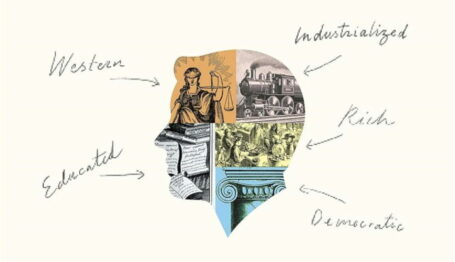Special Report
ProPublica’s Weaponization of Journalism: The Good


ProPublica: How Investigative Journalism Can Be Weaponized (full series)
The Good | The Bad | The Ugly Truth
Editor’s Note: This is a section of a forthcoming CRC special report Nonprofits and Journalism: An Analysis of the Shifting Information Landscape and Potential Growth Opportunities.
In the field of journalism, where objectivity and impartiality were once virtues, not vices, the rise of nonprofit newsrooms was initially meant to be a way for journalists to refocus some small segment of the industry by offering them the privilege of ignoring the bottom line. Not only were these nonprofit newsrooms meant to give reporters the time to research the stories that matter; they were also meant to offer a reprieve from the click-driven partisan stenograph-ing that meeting the bottom line often requires in these polarized times.
The dream of the nonprofit newsroom was, essentially, good-old-fashioned investigative reporting, and a nostalgic return to the norms of journalism before the internet. A huge number of nonprofit newsrooms quickly and brutally stamped out this dream and laughed at it.
States Newsroom, for example, was created by the Arabella Advisors network to act as a national left-wing propaganda machine that copy-and-pastes the same shallow content to dozens of state affiliates with one or two actual journalists each; Courier Newsroom was created by Democratic operative Tara McGowan to deliver punchy Democratic Party messages disguised as news articles to swing state voters during the 2020 election; and, most recently, ProPublica was used as the vehicle for a coordinated smear campaign against a conservative Supreme Court.[1]
It’s an archetypal story in the world of nonprofit journalism that deserves to be studied closely.
The Good
One of the most well-established and well-funded organizations in the field, ProPublica has, to its credit, created a fair imitation of the original nonprofit newsroom dream. ProPublica’s Local Reporting Network delivers resources and skills to struggling local newspapers enabling them to do serious investigative work.[2] As of 2023, the network sponsors 23 different journalists working on deep-dive stories in over a dozen states, and most of the stories it has sponsored focus on real local problems, not partisan fishing expeditions. Though most of the stories are written from an obviously left-leaning perspective, they are, overall, good work. Two of them even won Pulitzers, for whatever that award is worth since the purveyors of the Trump-Russia hoax were given theirs.[3]
ProPublica also maintains an excellent data-journalism program, particularly through their Nonprofit Explorer which stores and digitizes the tax forms of thousands of nonprofit organizations, empowering citizen journalists to examine the records of, and follow the money behind public policy advocates and so-called “dark money” groups active in U.S. politics.[4] It’s impossible to say for sure, but hundreds, if not thousands, of major news stories have resulted from reporters and citizen journalists scouring the nonprofit explorer.
The building blocks for a good nonprofit newsroom are there. ProPublica’s data journalism and exportable expertise model should be admired and mimicked by other prospective nonprofit newsmen. Not everything they do is commendable, though.
In the next installment, ProPublica’s more recent more narrowly focused coverage has undermined its reputation.
Notes
[1] InfluenceWatch, “States Newsroom (Newsroom Network),” https://www.influencewatch.org/non-profit/the-newsroom/; and InfluenceWatch, “Courier Newsroom,” https://www.influencewatch.org/non-profit/courier-newsroom/.
[2] ProPublica, “Local Reporting Network,” https://www.propublica.org/local-reporting-network/.
[3] ProPublica, “ProPublica and Local Reporting Partner Anchorage Daily News Win Pulitzer Prizes for National Reporting and Public Service,” May 4, 2020, https://www.propublica.org/article/pulitzer-winner-anchorage-daily-news-alaska-public-safety-navy-pacific-disaster.
[4] ProPublica, “Nonprofit Explorer,” https://projects.propublica.org/nonprofits/#/.



